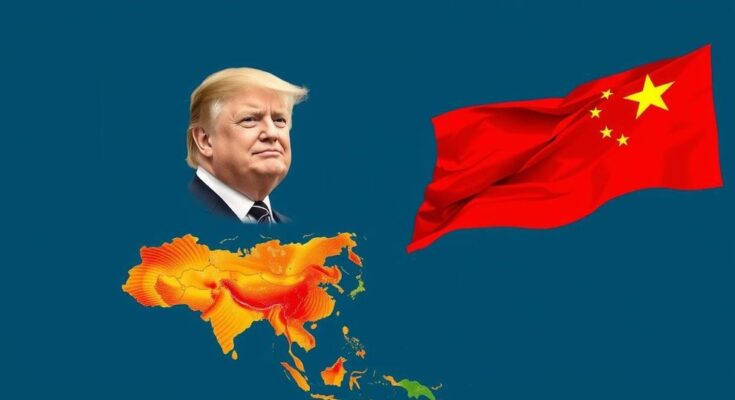As Donald Trump prepares to reclaim the presidency, China is poised to assume a leadership role in global climate diplomacy, especially highlighted by its cooperative efforts at COP29. Despite facing pressures regarding its classification as a donor, China has showcased its financing contributions. The anticipated resurgence of Trump, known for his climate skepticism, may create both hurdles and new opportunities for international climate negotiations.
As Donald Trump prepares to re-enter the White House, expectations rise that he will withdraw the United States from global climate diplomacy, thereby presenting China with an opportunity to assume a leadership role in this arena. At the COP29 climate negotiations in Baku, China has adopted a more collaborative stance, revealing details of its international climate financing efforts while resisting pressure to be designated as a donor nation. This shift in behavior represents a notable change from China’s customary assertiveness regarding international relations. In previous talks, particularly at COP28 in Dubai, the United States and China forged a cooperative agreement aimed at reducing dependency on fossil fuels, a pivotal cause of climate change. However, the political climate is likely to sour once Trump resumes office, given his history as a vocal skeptic of climate change initiatives, foreign assistance, and collaboration with China. Belinda Schaepe, a China analyst at the Centre for Research on Energy and Clean Air in London, remarked that this situation “opens up an opportunity for China to step up into even more of a climate leadership role,” potentially allowing it to present itself as a more responsible global power. However, for this narrative to hold, China may need to commit to more ambitious emission reduction targets and increase its international aid offerings. During the ongoing Baku discussions, the emphasis has shifted towards urging wealthier nations to exceed the current $100 billion annual aid commitment to developing countries significantly impacted by climate change. China has consistently resisted being labeled a donor country, arguing that this classification would subject it to excessive scrutiny. Nonetheless, Vice Premier Ding Xuexiang confirmed that since 2016, China has provided $24.5 billion in international climate financing, demonstrating its active involvement in the climate finance arena. Other negotiators, including Jennifer Morgan from Germany, acknowledged China’s contributions, yet stressed the importance of transparency in these financial claims. A potential way forward for China would involve pledging future aid voluntarily while maintaining its status as a developing country, a classification established in 1992 before its substantial economic transformation. As tensions rise between the U.S. and China following Trump’s election, experts predict increased challenges in climate negotiations. Li Shuo from the Asia Society Policy Institute expressed the concern that U.S.-China relations will deteriorate further, complicating negotiations on climate commitments. Nevertheless, he noted a potential silver lining: Trump’s stance may simplify negotiations as it represents the most extreme side of the debate.
The article discusses the implications of Donald Trump’s possible return to the presidency on global climate diplomacy, particularly in relation to China’s growing role as a climate leader. It highlights the contrasts between Trump’s skepticism towards climate initiatives and China’s current efforts to position itself as a cooperative and responsible global player in the fight against climate change, especially at the COP29 meeting in Azerbaijan. The interaction between nations in the context of climate diplomacy and finance is emphasized, along with the challenges that may arise due to the political landscape shifts following the U.S. elections.
In conclusion, with Donald Trump’s return to power, China stands poised to enhance its role as a leading voice in climate diplomacy. The apparent shift in China’s diplomatic approach at COP29 indicates a calculated effort to capitalize on the U.S. withdrawal from climate initiatives. Nevertheless, for China to substantiate its claims of leadership, it must commit to more ambitious goals in emission reductions and aid offerings. The evolving political dynamics between the U.S., China, and other nations will significantly shape the future of global climate negotiations.
Original Source: www.france24.com




